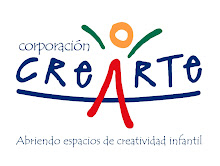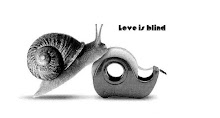
The following paper will be devoted to the analysis of the poem written by Geoffrey Chaucer , Truth with the purpose of discuss the elements included in the poem, which make it contemporary and applicable to today’s world. Besides, this paper will discuss if there is a genuine intention of being honest, just like the poem asks everyone who reads it.
This paper will have the following structure, as a way of presenting the ideas and arguments in a clearer and more organized way. First, it will be presented the central argument of this work, which declares that the poem Truth and its content, still is contemporary and if it can be applicable to today’s world. Second, it will be discussed if the term “truth” and everything that involves it is needed now and why. Then, in the third part of this work will be presented a discussion about the meaning or hidden message of the poem providing current examples regarding to some fragments of the poem, as a way of comparison between today’s life and Chaucer’s poem. In fourth place, this paper will discuss the possible moral contained, in order to provide facts that support the idea of the lesson of the poem. In the fifth part it will be exposed the reason of why this poem was chosen. Moreover, it will be presented the implication of being aware of the content of Truth and its applicability to an EFL classroom. Finally, this paper will present conclusions about the development of this essay.
Now, having exposed the structure of this work, it is significant to start its development. Then, the first question that needs to be answered is presented in the following way: is Truth contemporary? Can we apply it to today’s world? First of all, it is necessary to know what truth is, in order to say if it contemporary or not. Truth is “the quality or state of being true (…) a fact or belief that is accepted as true” (Oxford, 2004). So, one aspect that can be extracted from this quote is that Truth cannot be classified into any specific time or period of time. It is the same to talk about truth two centuries ago than now. For instance, in the time of the old Greece, in the medieval times, twenty years ago or even today, people have the same understanding about the concept of truth. Maybe there are some differences regarding to the assertions of the term itself but its meaning, in the deepest understanding, remains the same. So, this is the first argument that supports the idea of the contemporary of truth. Now, it is necessary to reflect on the idea if we can apply Truth to today’s world. According to the arguments presented above, it can be said that it is applicable for the reason that Truth is timeless and that way, it can be applicable in our current society.
Truth is timeless but that does not mean that our society needs it. So, do we need truth in our world? Why? The answer to this question might be quite intriguing for, if we are living in a world that is corrupted and full of liars, full of people who want to cheat others, where it seems that the only way of surviving and getting someone else’s acceptation is through presenting a friendliness mask, which hides the real and dishonest face, because just very few people are prepared for facing and listening to the truth. So, according to these facts we do need more truth in our lives but, is everybody prepared for it?
After presented the necessity of truth in today’s world, it is relevant to mention the two implications regarding to the meaning given to truth in the poem. The first meaning is related to find it, profess it but as a way of obtaining salvation for a future life in Heaven, which is explicitly in the poem and, the second is to find the truth, profess the truth but not for obtaining the salvation but, for being honest just because. For example, the poem says: “stick to the high road and let your spirit lead you”. Here, Chaucer is explicitly calling people to follow the correct and honest side of truth for; their spirit will lead them to Paradise and also when the poem says: “leave this world from which you are enslaved. Cry mercy to Him” it is, again, calling people to act and behave like good citizens in order to save their souls. However, this assumption may lead people to be false because it would be a dishonest truth, in the sense that people will only try to be honest and good citizens just because they want to be saved from falling in Hell and, consequently they will not be honest just for the reason of being honest. In this sense, the author is presenting Truth as a path to Heaven and not as an end itself.
Subsequent to the explanation of the meaning and the message of the poem Truth, the paper will discuss about the moral implicit on it. When Chaucer, in the first line of the poem, wrote: “Flee from the crowd and dwell with truth”, he is teaching and calling to the reader to follow the path of being honest, he saying that people need to stay away from the unkind crowd. In other words, he is requesting to follow the difficult and lonely road of being honest.
Following to the explanation of the moral, it will be presented the reason of having chosen this poem regarding to its applicability to an EFL classroom as a way of bringing this topic closer to the education field. It was chosen because teaching values in this postmodern society, where personal interests are more important than collective interests, where our fast consumer society has led people to be very individualistic, it is compulsory to humanize the teaching-learning process and, presenting these kinds of poems is appropriate.
As a way of conclusion, it can be said that Chaucer, with his poem Truth, is calling people to be honest but with a purpose; obtaining the salvation. In this way, it is not an honest truth. People should be honest just because, for the reason that just trying to get something in exchange for something it is not the way honesty should be. Our society needs more truth and teaching this inside the classroom, it is a good starting point and that is why Truth is so contemporary and applicable to today’s world.
REFERENCES
Oxford University Press, “Concise Oxford English Dictionary” 11th. Edition 2004











